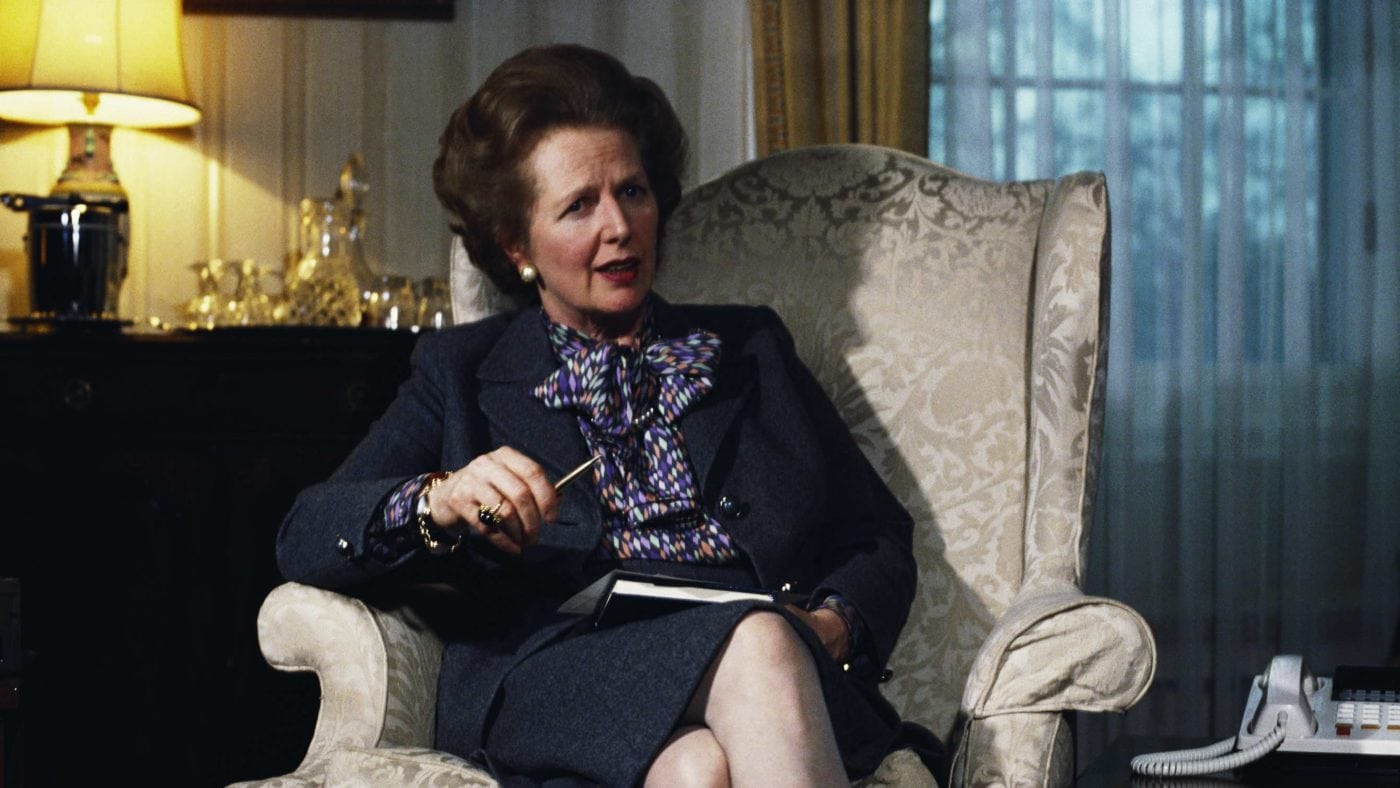There is a spectre haunting this Tory leadership contest – the spectre of Margaret Thatcher. Be it Rishi Sunak trying to mention the Iron Lady’s name as much as possible in a Telegraph interview, or Liz Truss parading in a series of imitation Thatcher outfits, the race for Number 10 has rapidly become a competition to pay tribute to my party’s household god.
Why the two do so is understandable. Once the Foreign Secretary had dropped her misguided teenage passion for republicanism and Lib-Demmery, she joined the Tory party of the late 1990s, where the Iron Lady’s looming influence was inescapable. Similarly, Sunak did his best impression of the Bruges speech by lamenting Tony Blair’s Europhilia in his school newspaper following the 1997 general election – as was par for the course for any right-of-centre public schoolboy.
But the resonance of Thatcher’s name for contemporary competing candidates does not derive solely from their pubescent political posturing. HIgh inflation, strikes, and trouble with Russia all render comparisons with the 1980s that bit more piquant.
Of course, the two disagree on exactly what taking their cue from Thatcherism actually implies. Sunak sees the core of Thatcher’s lessons for modern Tories in her zealous efforts to get inflation and borrowing down in her first few years in office. Hence why he has been so reluctant to allow unfunded tax cuts or spending increases. By contrast, Truss sees Thatcherism today as being a commitment to cutting taxes, shaking off regulations, and going for growth. Both surely can’t be right?
Well, they can, to a degree. Sunak takes inspiration from the 1981 Budget, and Geoffrey Howe’s tax raises to cut public sector borrowing in response to stagflation, Truss from the tax cuts and deregulation of Nigel Lawson’s chancellorship.
This is therefore not so much a battle over Thatcherism per se, as between two different sides of her legacy. The most concerning thing is that both candidates appear stuck within a single, rigid, interpretation of how Conservative economic policy should work.
Moreover, trying to foist a particular interpretation of Thatcherism on the contemporary political scene risks obscuring the really important leadership lessons of her premiership.
To find out what those are, you could do a lot worse than read Henry Kissinger’s latest book, pithily titled Leadership. The former Secretary of State profiles profiles six historic leaders, from Nixon to de Gaulle, concluding with a chapter on the Great Lady. For Kissinger, the lesson of Thatcher’s time in Number 10 is less to do with her commitment to monetarism, tax cuts or deregulation, and more to do with her strategy for achieving her remarkable goals.
When Thatcher came to power in 1979, she and her team had had years to analyse, diagnose, and plan how to resolve the problems Britain faced. Lord Frost has highlighted the importance of John Hoskyns – the future head of her Number 10 Policy Unit – whose ‘Stepping Stones’ report summarised what had gone so wrong in post-war Britain. In office, Thatcher knew she had to curb excessive trade union power, bring down inflation, and – perhaps most importantly of all – reverse a sense of inexorable decline.
Neither candidate to be our next Prime Minister has had the luxury of time in opposition to sketch out their plan for what needs to be done to fix the stagflation, sclerotic productivity, and bureaucratic inertia that are now holding Britain back. Both certainly have ideas about what needs to change, and Sunak had begun to advance them at the Treasury before his resignation. But both need to go much further in envisaging a clear end goal on which to hook their strategies.
Both need to learn from Thatcher that, whilst it is essential to have a clear vision, in practice one cannot fall back on the easy solutions and ideological purity that commentators so often demand. As the 1981 Budget showed, she was willing to raise taxes if it helped reach the ultimate goal of curbing inflation. She worked through trade union reform in stages and made concessions to the miners early in her premiership to avoid a strike for which her government was unprepared. Losing the battle can mean winning the war.
Likewise, the Prime Minister whom Kissinger lauds as a stout believer in national sovereignty also understood the limits within which it operates. The same leader that sent a taskforce to recapture the Falklands signed the Anglo-Irish Agreement that began the end of the Troubles by introducing an Irish role in the government of Northern Ireland. She also arranged the handover of Hong Kong to China, a regime she despised. She even considered handing over the Falklands to the United Nations, if it won American support for her efforts once the Argentinians had refused to budge.
The real lesson from Thatcher for our next Prime Minister is therefore neither sartorial, nor drily economic. Instead, it is that crucial understanding that success in politics requires a clear end goal, a strategy to reach it, and the flexibility to change approach when necessary. Whatever their visions for Britain, both candidates will need that if they want to make their time in Downing Street anywhere hear as much of a success as she did.
Click here to subscribe to our daily briefing – the best pieces from CapX and across the web.
CapX depends on the generosity of its readers. If you value what we do, please consider making a donation.


